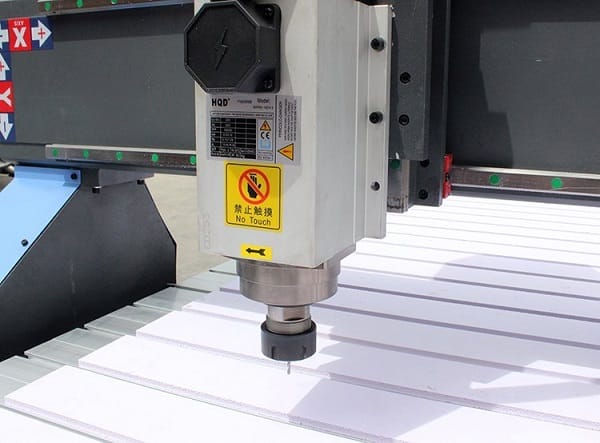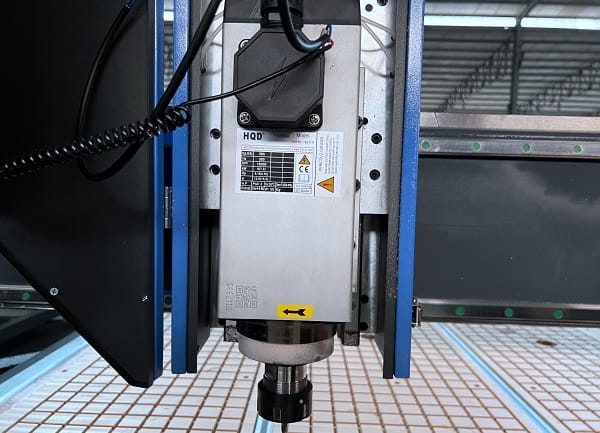A New Era of Precision and Efficiency
In the ever-evolving world of industrial automation, desktop CNC routers are making a substantial impact. These compact yet powerful machines are transforming manufacturing by providing high-precision machining capabilities while reducing operational costs. Unlike traditional CNC machines, desktop CNC routers offer accessibility without compromising on performance, making them an indispensable tool for modern industrial operations.
The Modern Advantages of Desktop CNC Routers
Precision and Consistency
One of the key strengths of desktop CNC routers lies in their ability to deliver unmatched precision. Thanks to advanced control systems and high-quality components, these machines can achieve intricate designs and tight tolerances with absolute consistency. This ensures that industries requiring meticulous craftsmanship, such as aerospace, electronics, and medical device manufacturing, can maintain high production standards.

Space-Saving and Cost-Effective
Traditional CNC machines require significant floor space, making them impractical for small-scale manufacturers or industrial R&D departments. Desktop CNC routers, however, offer a compact footprint while maintaining industrial-grade performance. This not only saves valuable factory space but also significantly reduces initial investment and maintenance costs, making high-quality CNC machining accessible to a wider range of businesses.
High-Level Automation for Increased Productivity
Automation is the backbone of modern industrial processes, and desktop CNC routers align perfectly with this trend. Equipped with advanced software, these machines support full automation, from design to execution, reducing human intervention and minimizing errors. This leads to higher efficiency, reduced labor costs, and improved workflow consistency, making them a must-have in smart factories and Industry 4.0 environments.
Versatility Across Materials and Applications
Unlike conventional CNC systems limited to specific materials, desktop CNC routers are versatile and capable of working with a wide array of materials, including:
Metals (Aluminum, Brass, Copper, Titanium)
Plastics (Acrylic, Polycarbonate, ABS, POM)
Wood (Hardwood, Plywood, MDF)
Composites (Carbon Fiber, Fiberglass)
This versatility makes them suitable for multiple industrial applications, including prototyping, mold-making, precision engraving, and small-batch manufacturing.
Seamless Integration with Smart Manufacturing Systems
With the rise of industrial IoT (IIoT) and digital manufacturing, desktop CNC routers can integrate with cloud-based platforms, AI-driven analytics, and automated supply chain systems. This connectivity allows manufacturers to monitor performance in real time, optimize tool paths, and reduce material wastage, leading to an overall increase in production efficiency.
The Growing Industrial Applications of Desktop CNC Routers
Prototyping and R&D
For industrial research and development teams, rapid prototyping is essential. Desktop CNC routers allow engineers to quickly transform digital designs into physical models with minimal lead time. This significantly accelerates innovation cycles in industries like robotics, automotive, and semiconductor manufacturing.
Custom Part Fabrication
Industries requiring customized components benefit greatly from desktop CNC routers. Whether producing bespoke machine parts, specialized tooling, or intricate circuit boards, these machines offer unparalleled flexibility in manufacturing unique, high-precision parts.
Small-Scale and On-Demand Production
With a rising demand for customized, short-run manufacturing, desktop CNC routers provide an ideal solution. They enable businesses to produce limited batches of parts without the high costs associated with traditional mass production methods, ensuring greater agility in responding to market needs.
Training and Workforce Development
Manufacturers are increasingly using desktop CNC routers for employee training and skill development. These machines allow operators and engineers to gain hands-on experience with CNC programming, toolpath optimization, and machining strategies, preparing them for larger-scale automation.
The Future of Desktop CNC Routers in Industrial Automation
Integration with AI and Machine Learning
The future of desktop CNC routers lies in the seamless incorporation of AI-driven technologies. Advanced algorithms will further enhance automation by predicting tool wear, optimizing cutting paths, and reducing machine downtime, leading to unparalleled efficiency.
Hybrid Manufacturing Capabilities
We are already witnessing the emergence of hybrid manufacturing systems that combine desktop CNC routers with additive manufacturing (3D printing) technologies. This fusion will enable manufacturers to leverage the best of both subtractive and additive techniques, offering unprecedented design possibilities.
Increased Adoption in Smart Factories
As industrial automation progresses toward fully autonomous production lines, desktop CNC routers will play an essential role in creating flexible, adaptive manufacturing setups. Their compact size and intelligent features will make them an integral component of Industry 4.0 initiatives.
Advanced Material Processing
Innovations in cutting tools and machining techniques will allow desktop CNC routers to process even more advanced materials, including high-performance alloys and next-generation composites. This will further expand their applicability in high-tech industries like aerospace, medical technology, and nanotechnology.
A Smart Investment for Industrial Growth
The evolution of desktop CNC routers is transforming industrial automation by providing a powerful, cost-effective, and space-efficient machining solution. Their ability to deliver precision, versatility, and automation makes them a strategic investment for industries looking to enhance their manufacturing capabilities. As technology advances, these compact yet highly capable machines will continue to redefine the standards of industrial production, shaping the future of automated manufacturing worldwide.
For manufacturers seeking to stay ahead in an increasingly competitive landscape, integrating desktop CNC routers into their production workflows is not just an option—it’s a necessity.
